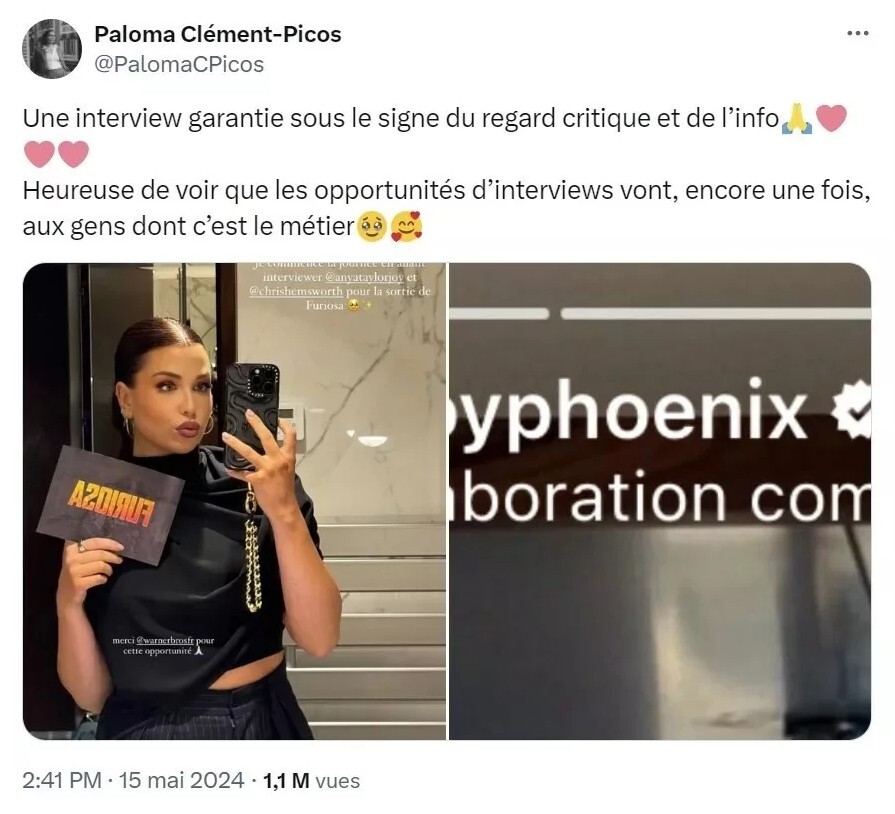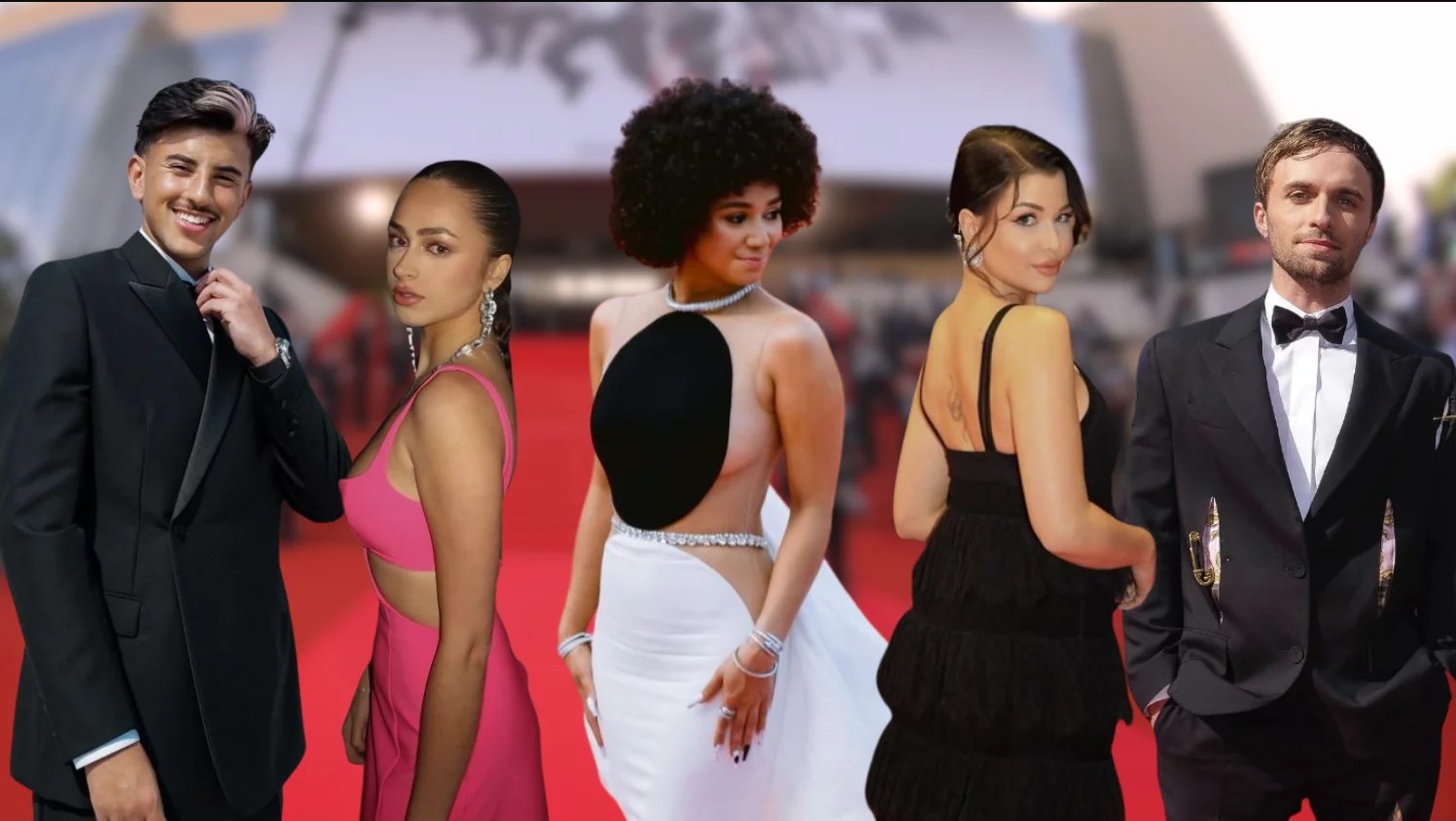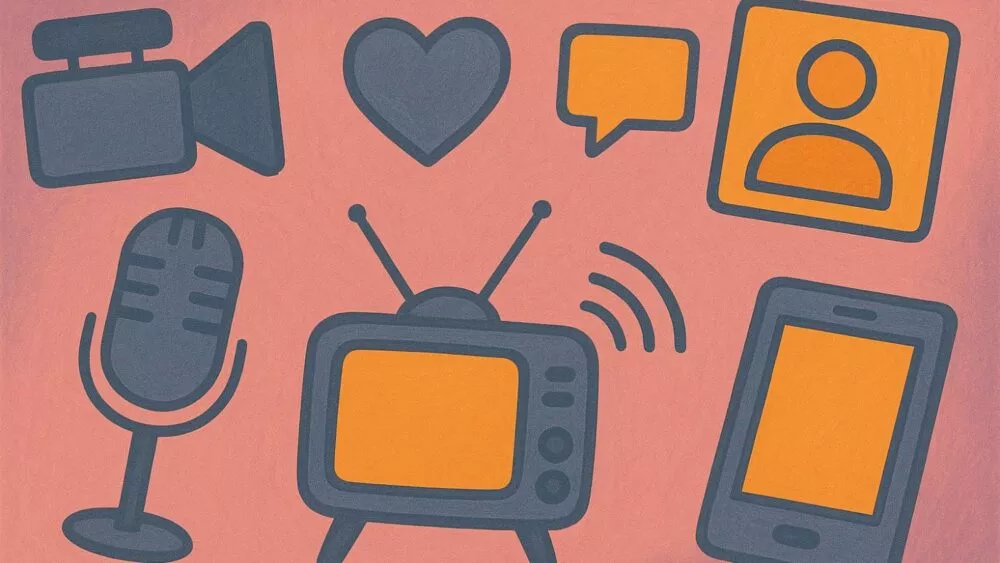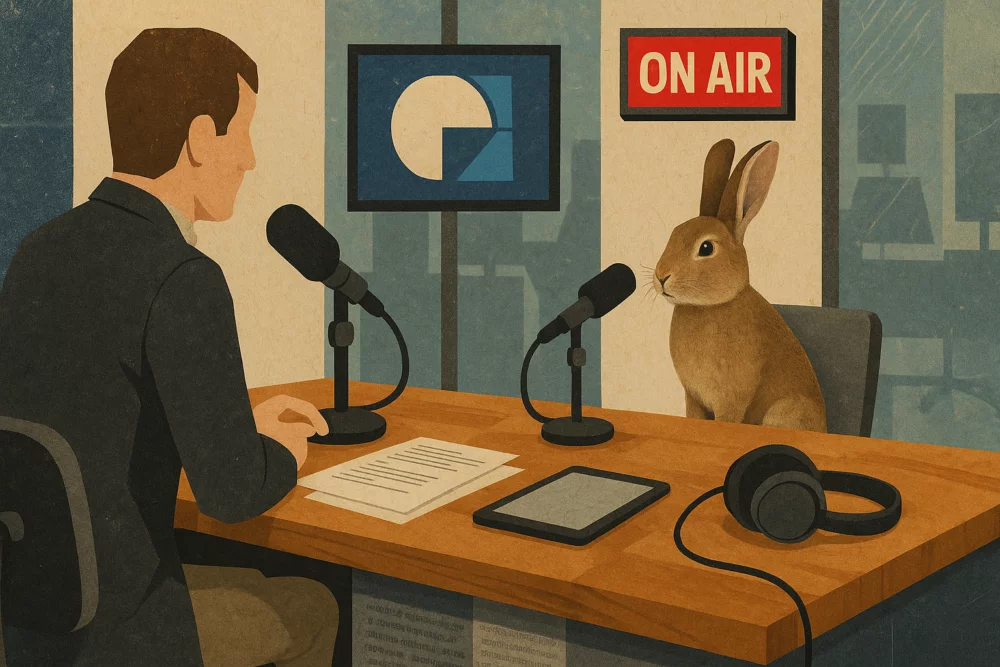At the 49th César Awards, her presence irritated many journalists — not because of her big smile or sparkly dress, but because of the microphone she held in her hand. That night, on the red carpet of the Olympia, she too was asking the questions. At the request of Canal+, the event’s broadcaster, Lena Mahfouf, aka Léna Situations, a leading French influencer with 10 million followers, was tasked with live interviews of the stars of the ceremony — names like Marion Cotillard, Benoît Magimel, Juliette Binoche, and Justine Triet.
Viewed as illegitimate by some internet users and accused of taking the place of “real” journalists, the 26-year-old responded on Instagram: “I understand that my presence might bother some. But I’ve never felt more in my place than when I can bring together curious minds and share moments with passionate people through digital media.” Whether at the Césars or more recently at Cannes, content creators are often invited and are sometimes asked to produce so-called “journalistic” content. A growing practice, it seems to annoy professional journalists.
“Two completely different professions”
Shana, 20, with 2 million TikTok followers, also regularly receives harsh comments. Invited by Estée Lauder to walk the red carpet at Cannes 2024, she believes content creators deserve to be there. “Even if we attend the same events, journalists and influencers are completely different professions. We’re here to promote a brand through our content, while journalists produce information,” she told MediaConnect. The influencer, born in Cannes, creates lifestyle content and shares her daily life with a young audience. “There’s room for everyone. I don’t see why there should be competition between journalists and creators.” She adds, “In my position, no one would turn down such an opportunity.” However, not everyone agrees. “It’s not a question of quotas but of ethics,” says culture columnist Paloma Clément Picos, who insists that “influencers are invited to interview actors just like journalists.” Take influencer EnjoyPhoenix, real name Marie Lopez. In May, the content creator with over 10 million followers interviewed the cast of Furiosa: A Mad Max Saga, a major Australian-American production starring Anya Taylor-Joy and Chris Hemsworth. Many media professionals criticized her lack of journalism training, as noted in a sarcastic tweet by Clément Picos.

The freelance journalist, who specializes in culture, is clear : “We end up coming after influencers who pretend to be journalists and know nothing about the industry. The public doesn’t realize how hard it is to land these interviews. Slots are scarce.” In an increasingly precarious media industry, “losing an interview slot means losing a freelance gig — and money,” she adds. She has worked for Paris Match and Konbini. Gaël Camba, a reporter for BFM Nice Côte d’Azur, doesn’t mince words. According to him, EnjoyPhoenix’s interview “wasn’t an interview, but advertising — a biased product placement.” A recent graduate from the CFJ in Lyon, he believes PR teams aim to “put influencers and journalists on the same level,” ensuring positive publicity since content creators aren’t held to journalists’ objectivity standards. EnjoyPhoenix declined to comment when contacted multiple times.
“Blurring boundaries”
Cinema content creator clararunaway refused to interview actors on the Cannes red carpet for TikTok. She called the proposal “indecent” toward professional journalists. “I didn’t want to be invited solely because of my follower count, especially while my journalist friends struggle to find gigs,” she told MediaConnect. A cinephile influencer and former screenwriter with a YouTube infotainment channel followed by 190,000 people, she also regrets the editorial restrictions imposed by brands. “I find influencer interviews frustrating because the questions we’re allowed to ask often lack relevance.” She believes distributors prefer influencers because “they’re willing to ask questions a journalist never would.” At the recent Césars, some critics accused Léna Situations of lacking depth and failing to ask the actors any questions related to cinema. A difference in editorial approach is justified, according to Shana: “Our audiences are different. I think it’s a good thing that we, influencers with young communities, can highlight the world of cinema.” In short, it’s a different way to reach younger audiences increasingly turning away from traditional media, as shown by numerous studies. However, Gaël Camba warns this encourages a blurring of lines. A fan himself of YouTubers and streamers, he observes: “The boundary between influencer and journalist is becoming more and more blurred.” I wish event marketing teams would clearly indicate what’s advertising with influencers and what’s informational when it comes from journalists. Right now, it’s confusing for viewers,” adds Paloma Clément Picos.
According to her, collaborations between influencers and celebrities can even hurt journalists’ access: “Stars already dislike press junkets, where we’re rushed, stopwatch in hand. We try to stand out, to create real moments for them to open up. That requires deep cinematic knowledge and a critical eye.”
“A new communication and marketing medium”
For YouTuber clararunaway, who frequently collaborates with media outlets, it’s essential to regulate this kind of commercial operation: “The internet also has a place in the media space. But we shouldn’t be prioritized over journalists just because we reach a new audience.” Paloma Clément Picos agrees that specialized influencers can be “legitimate.” “The influencer world has both excellent aspects and excesses — like everywhere,” echoes journalist Gaël Camba.“Because I’m a ‘TikToker,’ people assume I should just stay home,” laments Shana, who responds with irony on social media. For the record, 42% of content creators feel they are negatively portrayed by traditional media, according to the Reech study Influencers and Brands. Despite the criticism, the young woman, active on social media for three years, believes the rise of these new careers doesn’t contradict journalism.“Influencers aren’t here to replace journalists. On the contrary, we can work together. Collaborating can be a strength — bringing together information and the general public.”
According to a Statista study published in late 2023 and reported by Le Monde, one-quarter of companies now dedicate over 40% of their marketing budgets to influencer marketing double the amount in just three years.“Brands have certain obligations to turn to content creators online,” admits reporter Gaël Camba. “I get that it’s the game. It’s a new communication and marketing medium”, says journalist Paloma Clément Picos, who hopes the two professions will be clearly distinguished moving forward.







